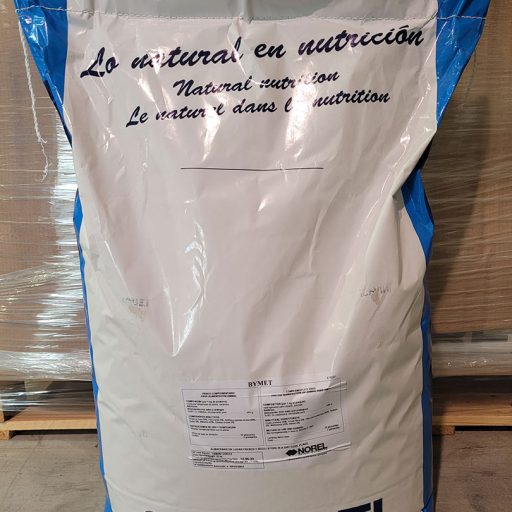BYCHOL
Κωδικός προϊόντος:
009-06-0545
Κατηγορία: Aminoacids
Additional information
- Dairy cows: Cows’ energy requirements to support milk production after calving increase rapidly, while feed consumption is limited before and after calving and increases slowly afterwards. Therefore, most dairy cows are in a negative energy balance (NEB) that lasts for several weeks after calving. NEB is partially dealt by mobilising body fat reserves and storing it in the liver for energy production. This is a normal function of the metabolism of all mammals. But when the stored fatty acids in the liver exceed its ability to remove them into the bloodstream as very low-density lipoproteins (VLDL), metabolic diseases, such as fatty liver disease, clinical and subclinical ketosis occur, which have significant negative effects on health (increased risk of oestrus displacement, metritis, mastitis, etc.), milk production and fertility of cows.
- Dairy sheep and goats: in dairy ewes and goats, the same mechanism takes place more commonly in the last month of pregnancy. During this time, the ewe’s energy requirements increase significantly, while food consumption is limited due to the size of the uterus in the abdomen and the hormonal changes that precede parturition. Similar to cows after calving, most ewes before lambing are in an energy deficit which leads to fat mobilisation from body reserves and accumulated fatty acids in the liver, increasing the risk of pregnancy toxemia. Although no clinical symptoms are manifested, the subclinical condition as a consequence of an overburdened liver, has an impact on the milk production of the herd.
- Choline is an essential nutrient for all animal species with an important role in fat metabolism. Specifically, choline contributes to the removal of fatty acids that have accumulated in the liver from the mobilisation of body reserves in the periparturient period, to the circulation as a VLDL, thus protecting against the manifestation of related metabolic diseases.
- Results from 21 different studies have shown that administrating bypass choline to cows from 21 to 28 days before calving up to 90 days after calving, increases dry matter consumption before and after calving, daily milk production by 1.6 kg per day and the total amount of fat and protein produced in the milk.
- Our company exclusively has BYCHOL by NOREL, a bypass choline chloride, protected by a hydrogenated fat matrix. It is worth mentioning that the administration of simple choline (not bypass) is of no value in ruminants, as it is completely disintegrated in the rumen.
- BYCHOL is administrated in all ruminant species during pregnancy and lactation at the following dosage:
Cows: 60 gr per day
Sheep and goats: 7 gr per day
It is available in bags of 25 kg or mixed in mixtures of vitamins, macro and trace elements according to the needs of each rearing. - It is often advised the combined administration of bypass niacin. Regular assessment of the nutritional status indicators at crucial time and targeted nutritional and animal husbandry management must coexist for better results.
References
Arshad, U., Zenobi, M. G., Staples, C. R., & Santos, J. E. P. (2020). Meta-analysis of the effects of supplemental rumen-protected choline during the transition period on performance and health of parous dairy cows. Journal of dairy science, 103(1), 282-300.



